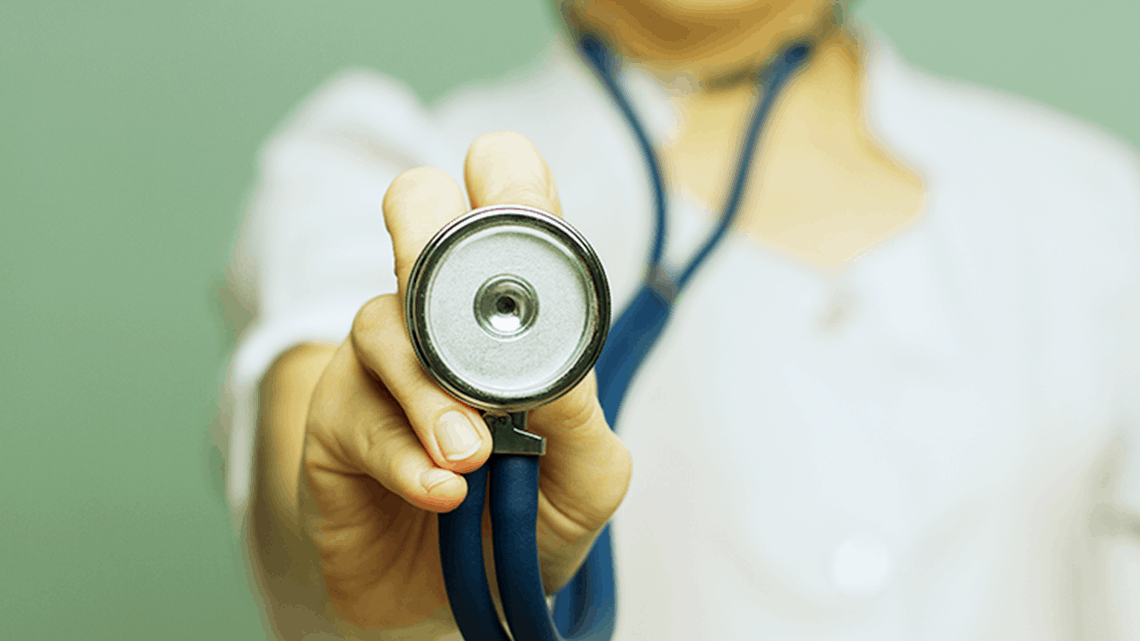How important is it to clean a stethoscope?
For a practicing physician, seeing hundreds of patients is all in a day’s work. He/she don’t have that kind of time on their hands where they can always pause before looking at another patient. While on rounds in ward, many of them have to go one by one and check all the patients and that is all but excluding the emergency cases. Stethoscope plays an important role in the diagnostics of a disease and whenever a patient visits a clinic, he can almost always imagine a doctor putting a stethoscope against his chest to check for heart sounds. If a medical tool is really that important then it becomes equally important to keep a check on whether it is safe to use and is free of germs?
A known fact
We have come a long way since it has been established that practicing hand hygiene is extremely important for everyone, more for medical professionals though. Doctors and paramedical staff working with the patients have to make sure that every time they touch a patient, it should be with clean hands. In order to clean hands, hand sanitizer stations are usually placed throughout the hospital so that the risk of cross infection is minimized.
Is it equally important?
Before going in to a surgery, surgeons and all associated people wash and scrub themselves up, first with bar soap and water and then with other solutions available. Extreme caution and care is taken to disbar the germs from entering the sterilized environment. Practicing good hygiene becomes extremely important for the doctor because it is directly associated with the life of his/her patient but does cleaning stethoscope falls under the same category too?
What do the studies say?
Studies have suggested that stethoscope, after a single exam might contain the same amount of germs as that of a physician’s hand. Just to fill you on, let us know how much pathogen can a physicians’ hand really have? Approximately, 4.6 million bacteria might be roaming around the doctors’ hand. Now think if you were to touch your stethoscope with the same hand, you’d be contaminating it right away. There are variety of pathogens that have been found on stethoscopes such as pseudomonas aeruginosa, staphylococcus aureus, clostridium difficile, and others.
Breaking the chain
When it comes to counting pathogens in a veterinary facility, you can only imagine. Different modes have been used to instill knowledge into the doctors and those associated with handling patients about keeping a clean stethoscope. Later on, many studies were conducted to assess whether there was any change in the attitude and compliance? The answer was in negative. One can simply use a recommended disinfectant at times to clean the stethoscope and that way, the chain of infection can be broken completely.
We know what to do when someone gets a bruise or a cut; we try and apply Dettol antiseptic liquid. We know how to keep our hands clean by washing hands regularly but why don’t we pay the same importance to keeping a stethoscope clean? Studies show that it would take much more than just education. Keeping a check, monitoring the levels and reiteration might be the key to finally keep germs off the stethoscope.
Now, more than ever
With the recently ongoing pandemic, it has been highly stressed to maintain utmost levels of hygiene throughout the hospitals and other facilities because this virus tends to spread through surfaces too. Just imagine what havoc it could wreak if a stethoscope that has been just used on a Covid-19 patient is used on another patient. During such hard times, it has become extremely important to understand the importance of cleaning stethoscope as much as one can. For those of you visiting the hospital, asking for a clean stethoscope might also instill a healthy trend among the health care workers. Even when it comes to taking your pet to the vet, ask for a clean stethoscope because animals might also suffer the same fate if a used stethoscope is reused on multiple pets. It doesn’t take much time to do so, anyway.
So this is why it is extremely important to clean a stethoscope. Keeping germs at bay is helpful for everyone and cleaning your stethoscope is one way of doing it. Let us know if you still have any questions, we’ll be more than happy to help you out.
